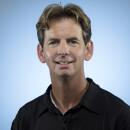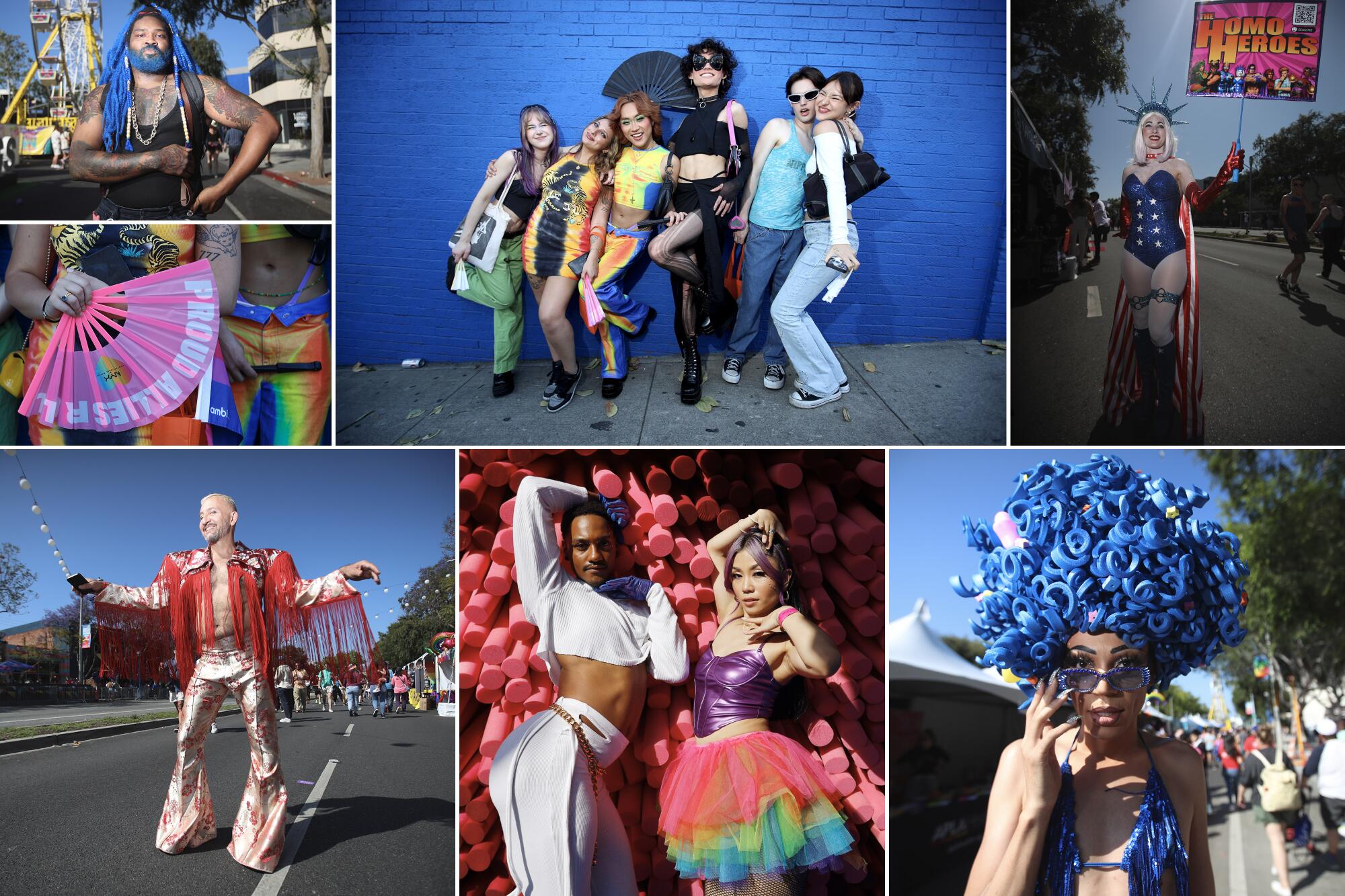
- Share via
Pride gatherings were poised for a celebratory comeback after a few years of more subdued COVID-era events. Instead, they’re taking place at a moment when the LGBTQ+ community faces increasing pressure.
Over the past few months, states have passed or proposed bills that limit the rights and visibility of trans people, drag performers and LGBTQ+ youth. In recent weeks, corporations such as Target and Anheuser-Busch caved to criticism from conservative groups over their partnerships with members of the LGBTQ+ community. On Tuesday, the Human Rights Campaign declared a state of emergency for LGBTQ+ people in the US.
This was the backdrop as thousands flocked to West Hollywood Park for WeHo Pride last weekend. A Times reporter and photographer spoke with attendees to ask what Pride means to them in this political and cultural climate. Some said they came to West Hollywood celebrate; some to find community; and some to be heard.
Here’s what they told us.
Francisco Alcazar, 55, recently moved to West Hollywood from Sydney, Australia. A longtime Pride-goer, he attended Saturday’s festivities in West Hollywood because it’s a place “we actually feel safe, which is very important right now.”
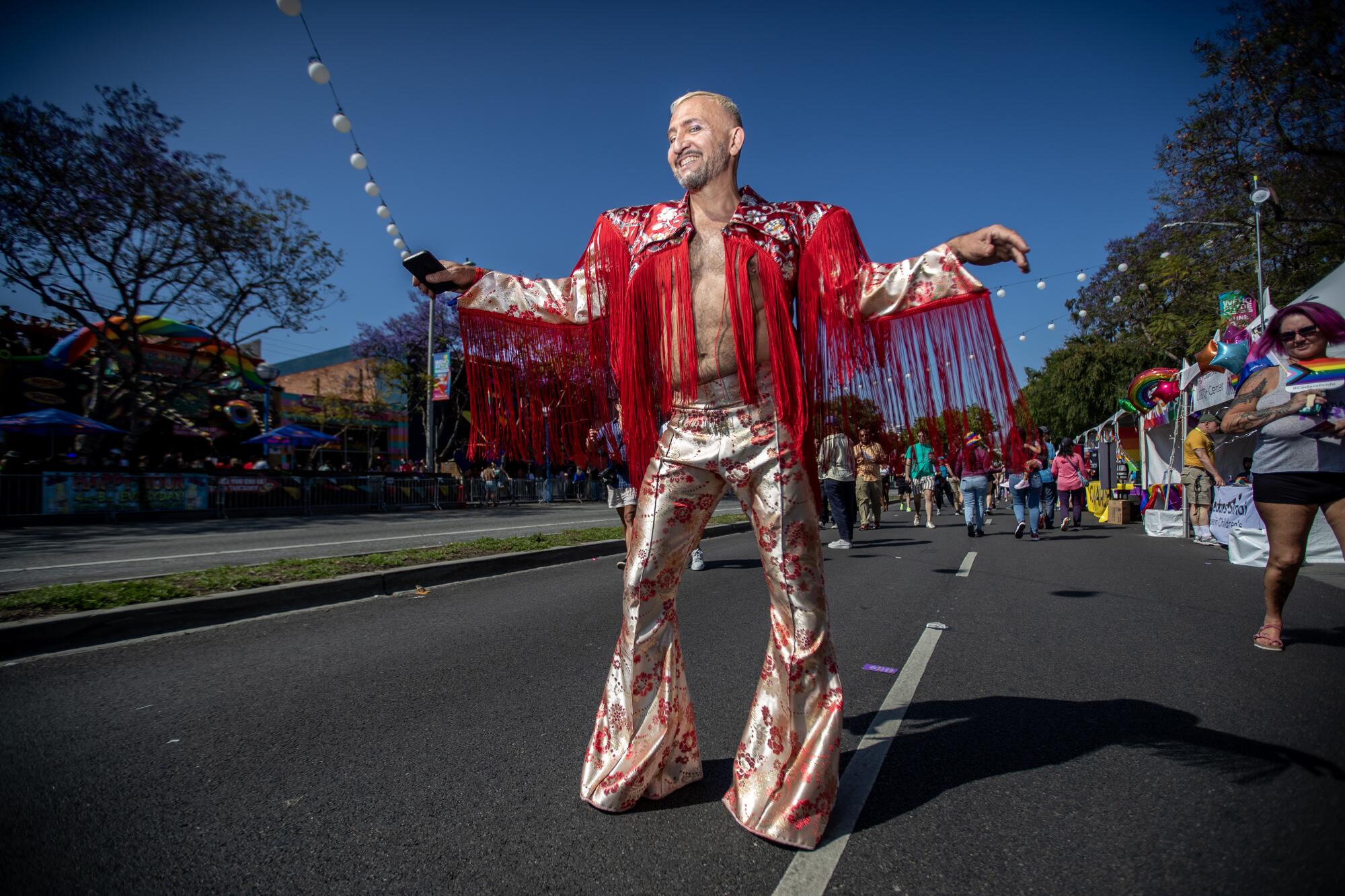
“We have to stand up for each other all the time. Younger people have to understand that all the rights they have now, they can be lost in a blink of an eye.”
— Francisco Alcazar
Karin Tatsuoka, 32, spoke while dancing with Montay Romero, 30. Tatsuoka, of Studio City, and said Pride is especially significant to her after living in Japan “where people are not always so open to the LGBTQ community.”
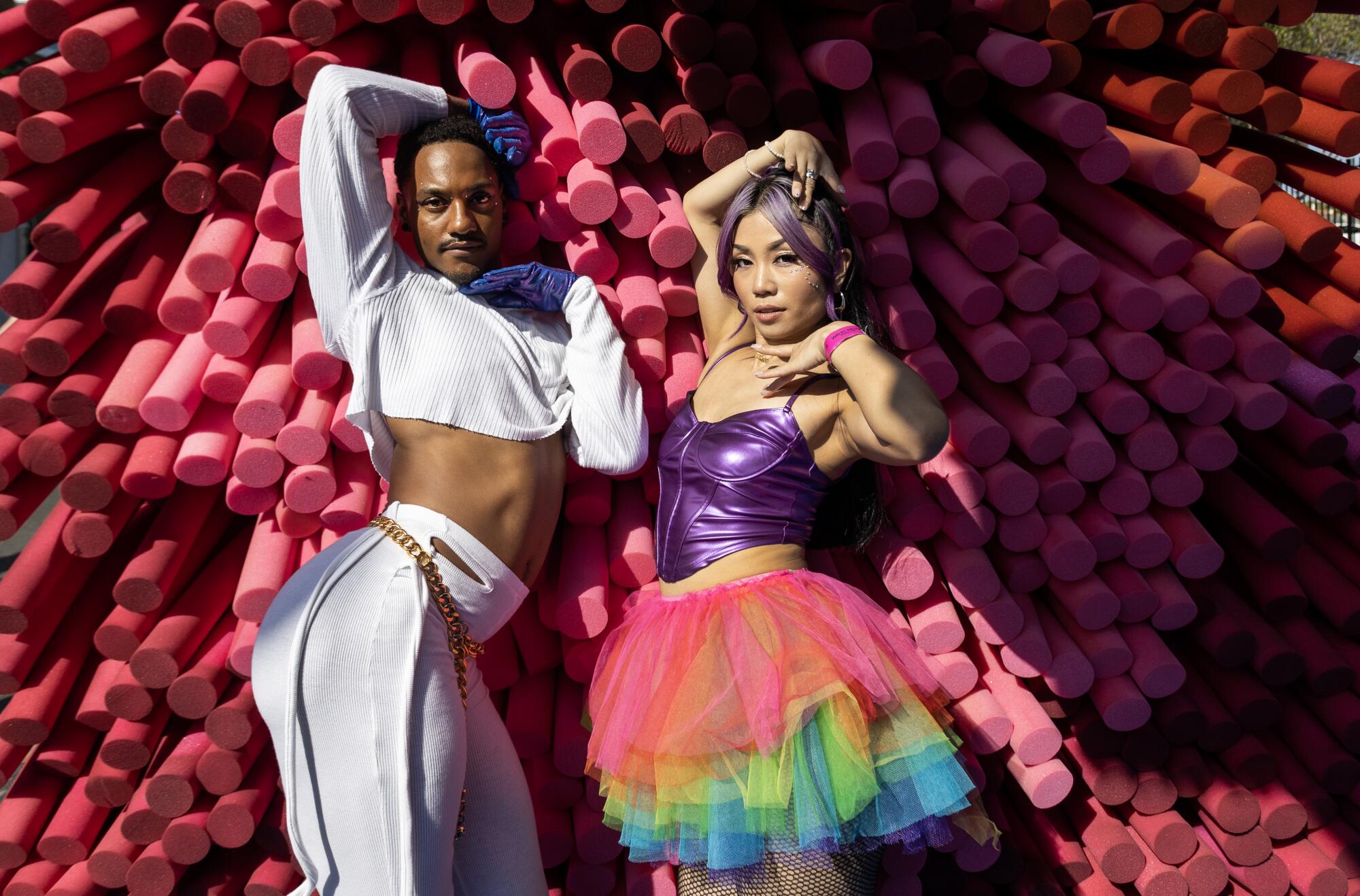
“It’s amazing to be here in LA and just to be who I am.”
— Karin Tatsuoka
Octavia Octave, 28, recently moved to L.A. from Montana, a state that banned gender-affirming medical care for transgender minors this April. Octave felt grateful to be at WeHo Pride, where “it’s magical to see that there is light at the end of the tunnel.”
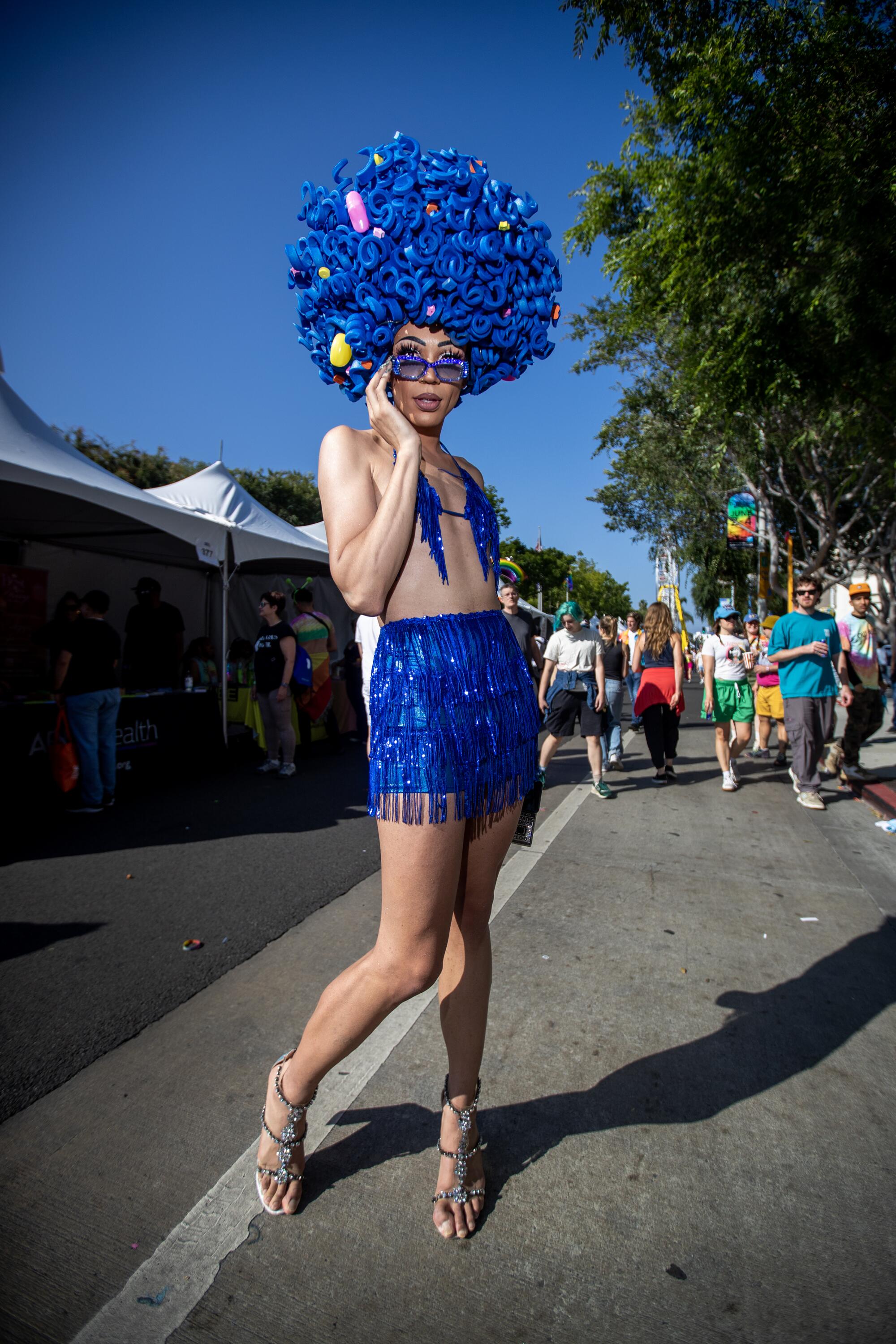
“There are so many people trying to tear us down right now and the biggest thing we can do is just authentically live our truths and be out there and be seen.”
— Octavia Octave
For Kapcino Norton, 54, coming to Pride with her wife of 14 years is a reminder that “I get to live my life as who I am.”
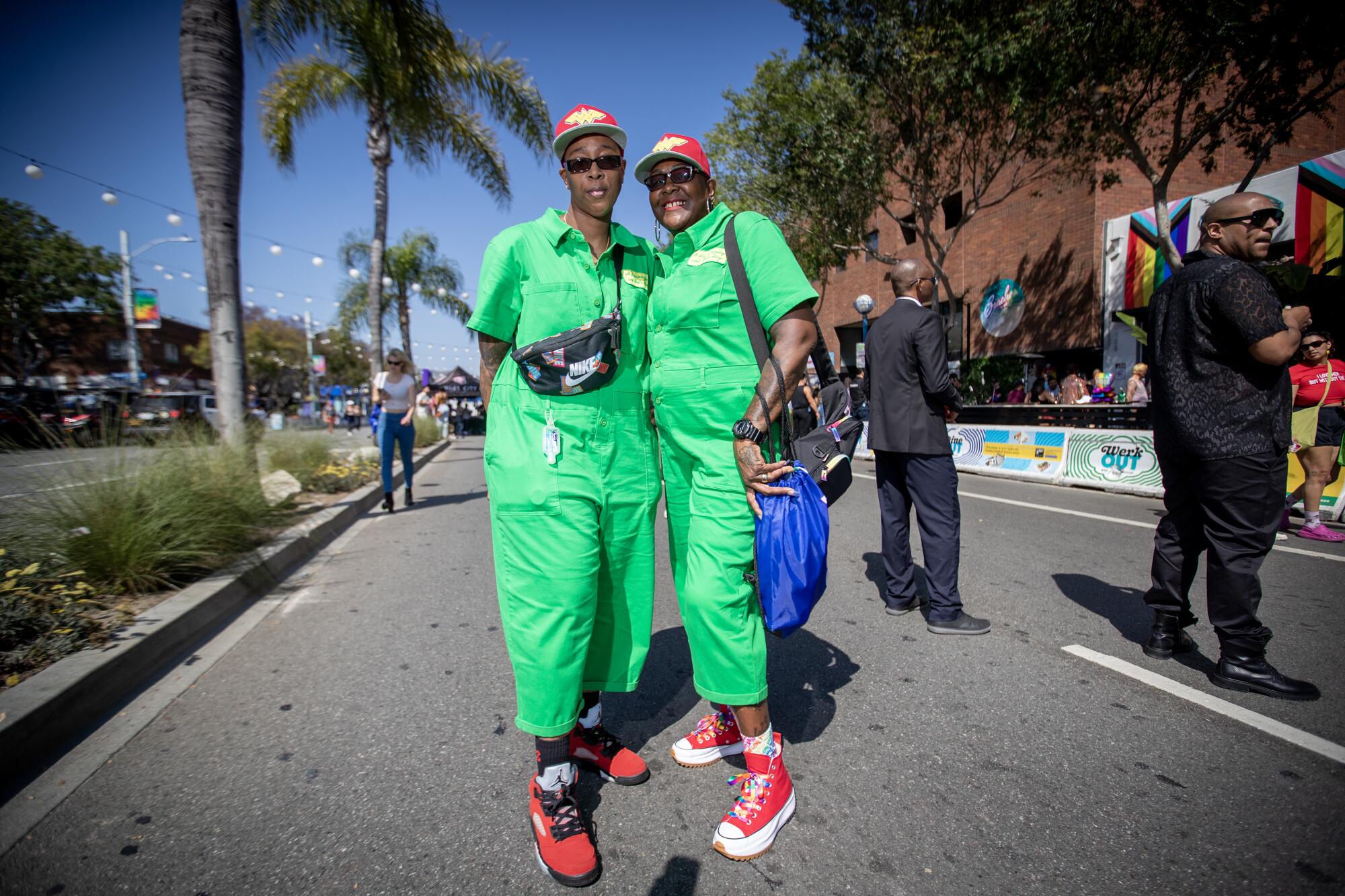
“I never got to experience Pride as a child. When I first came out, we didn’t have our rights. So to be 54 years old and to come out here and experience this with my wife, it’s wonderful.”
— Kapcino Norton
Ladina Spence, 28, has been attending Pride events for the past few years. She said she goes to as many as she can because she loves “how outgoing and accepting Pride is.”
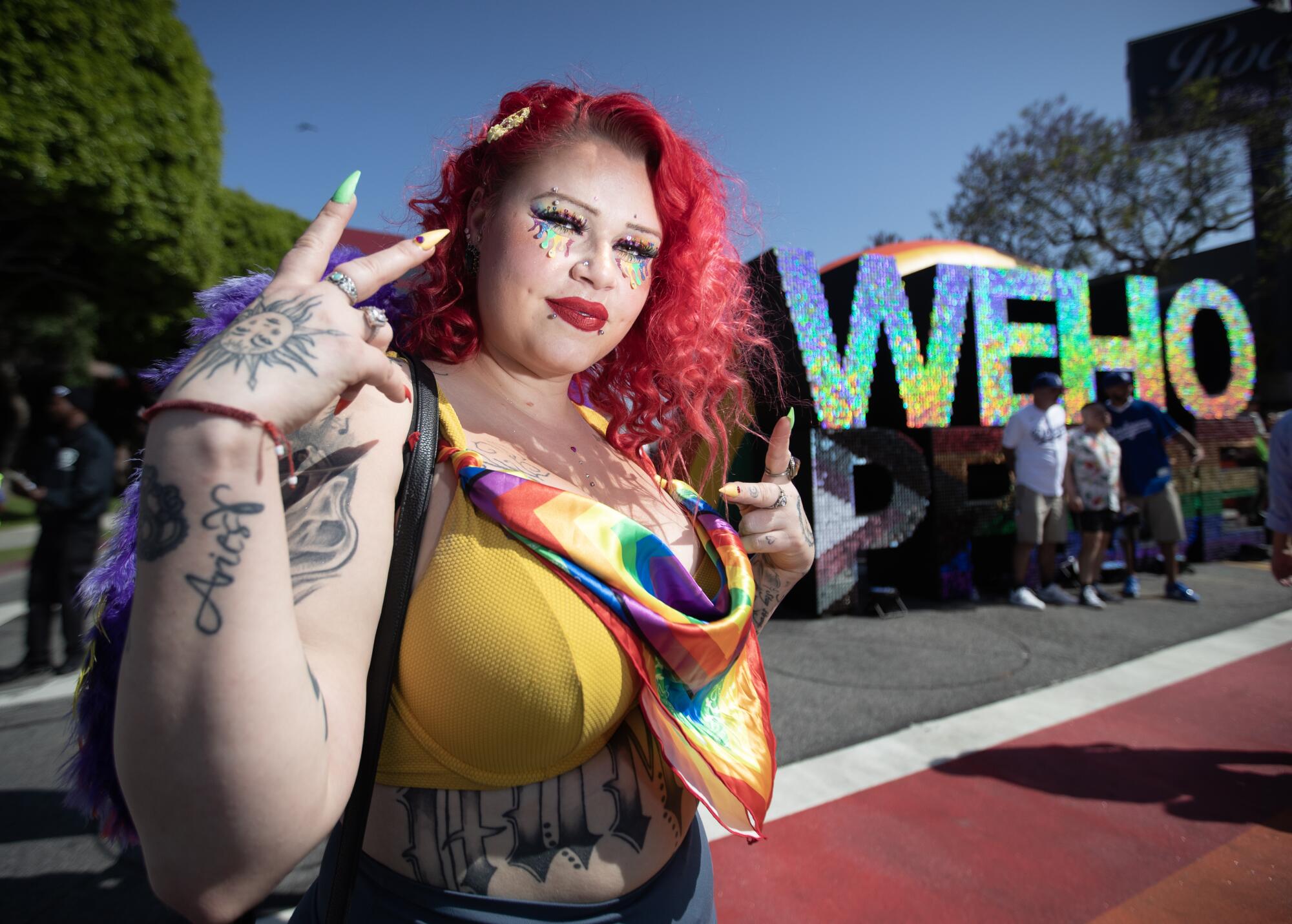
“People just want to love and enjoy their life. . . . . being here you can see that there’s no need for any hate.”
— Ladina Spence
Pride has become known for “fun,” said Morgan McMichaels, 42, a former contestant on “RuPaul’s Drag Race.” But the event’s history proves it’s also “a showing of strength and a showing of power.”
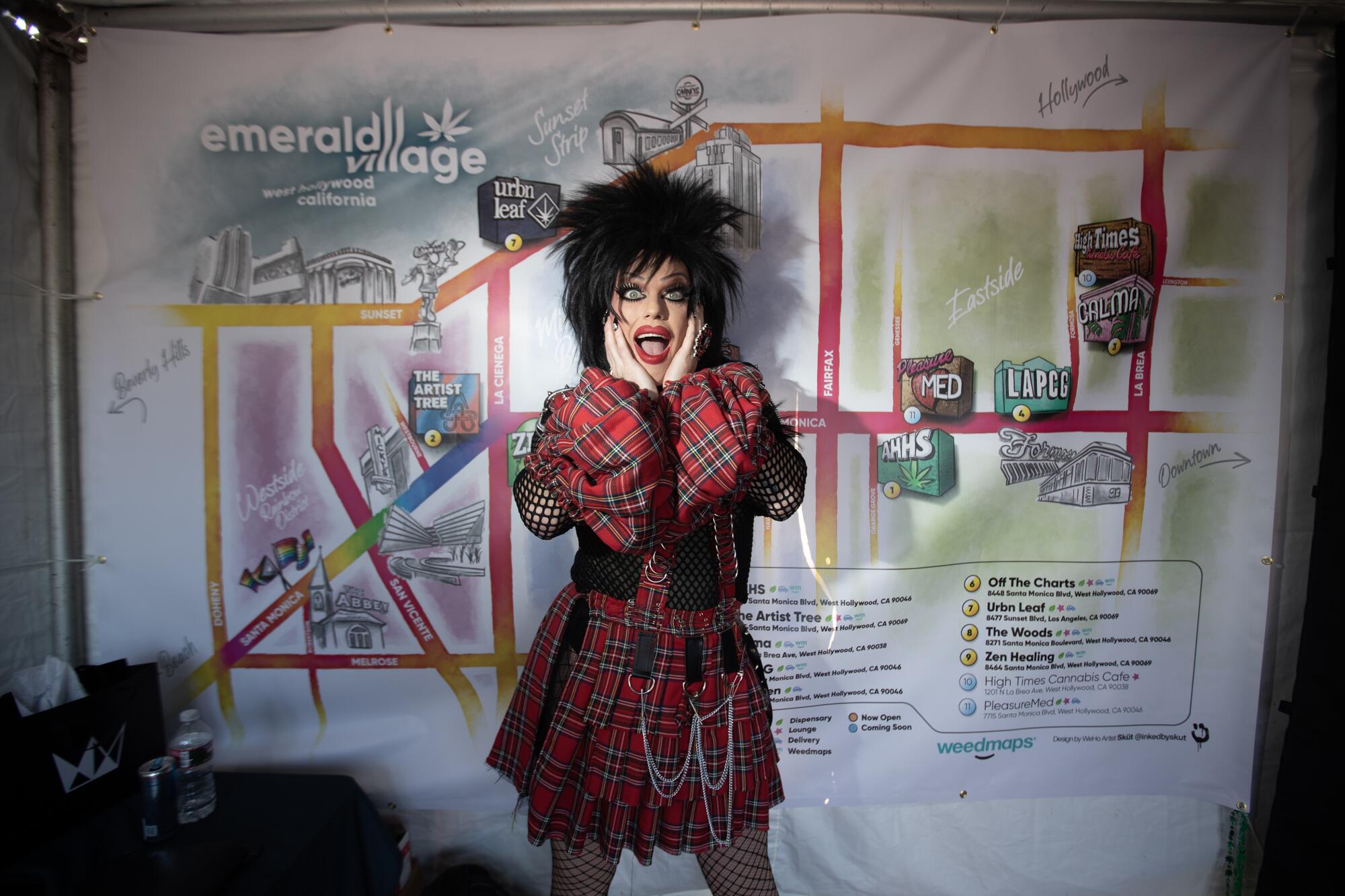
“ A lot of people on the right mistake our community’s kindness for weakness. They think we’re some sort of tame animal, but we’re still an animal. And that that passion for each other and to fight for each other is super, super raw and super rare.”
— Morgan McMichaels
Pride can be a “wonderful” respite from the onslaught legislation impacting the LGBTQ+ community, said Lancaster resident Alex “Alexis” Scott, 38. “This is somewhere everybody can just be safe and wear what they want.”
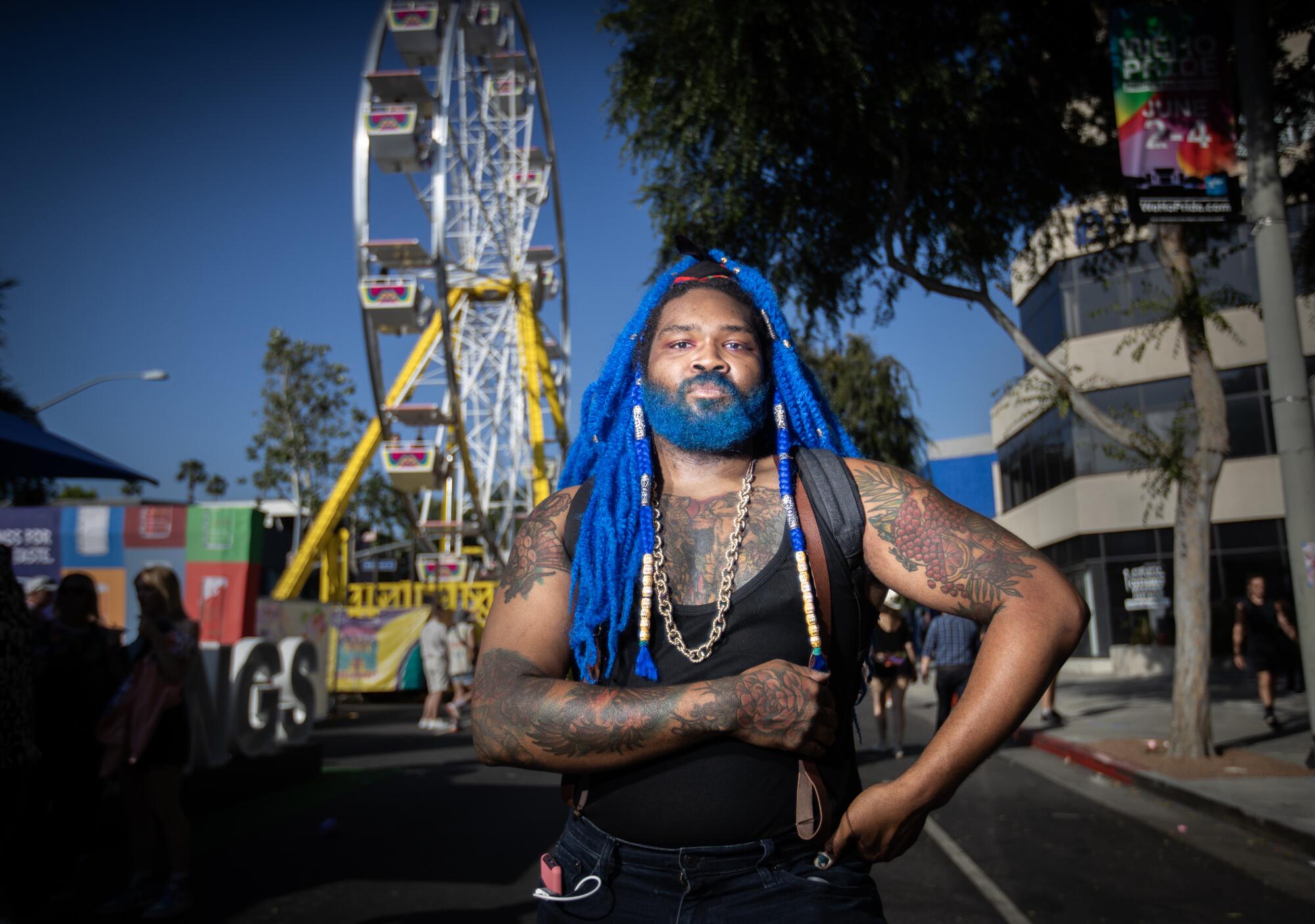
“You can tell there’s a sense of freedom and that nobody’s mad at anybody. We’re here because this is what we want everywhere, all the time.”
— Alex ‘Alexis’ Scott
Fashion designer Julia Clancey spends part of her time in West Hollywood and said she feels very lucky that the LGBTQ+ community in her neighborhood “have the freedom” to express themselves and their love.”
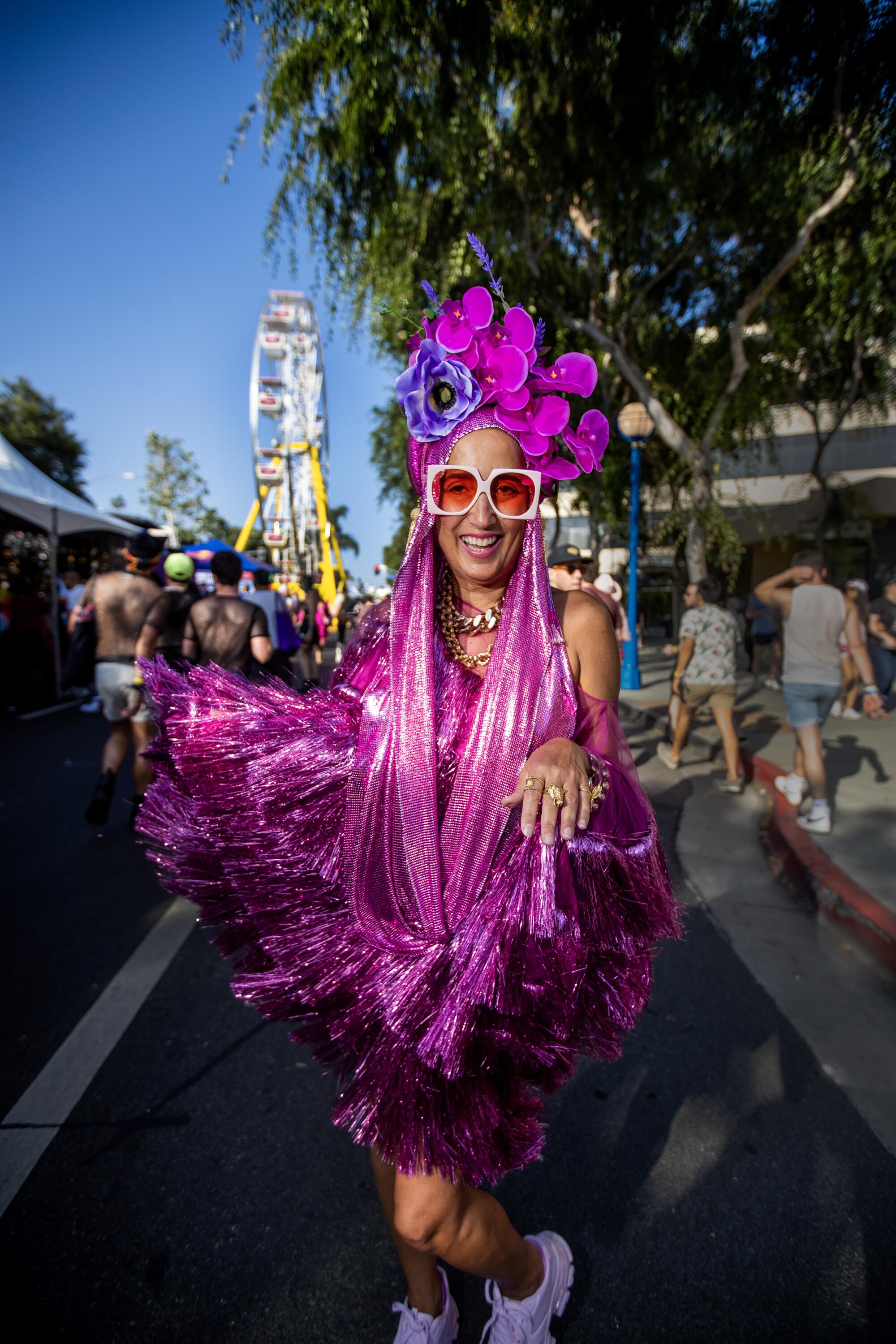
“It is important to be here. I think we have to stand up for each other. People need to understand and respect the amount of strength and courage it takes for people to naturally be who they are.”
— Julia Clancey
Studio City residents Alyssa Onofreo, 32 and Claire Max, 35, came to Pride together to support a friend who was performing. Onofreo said she dressed up as a “Pride Month demon” — a play on words merging the last letters of “Pride” with the first letters of “Month.” “If they’re gonna try and call us evil, I’ll put [the costume] on and I’ll make a rainbow.”
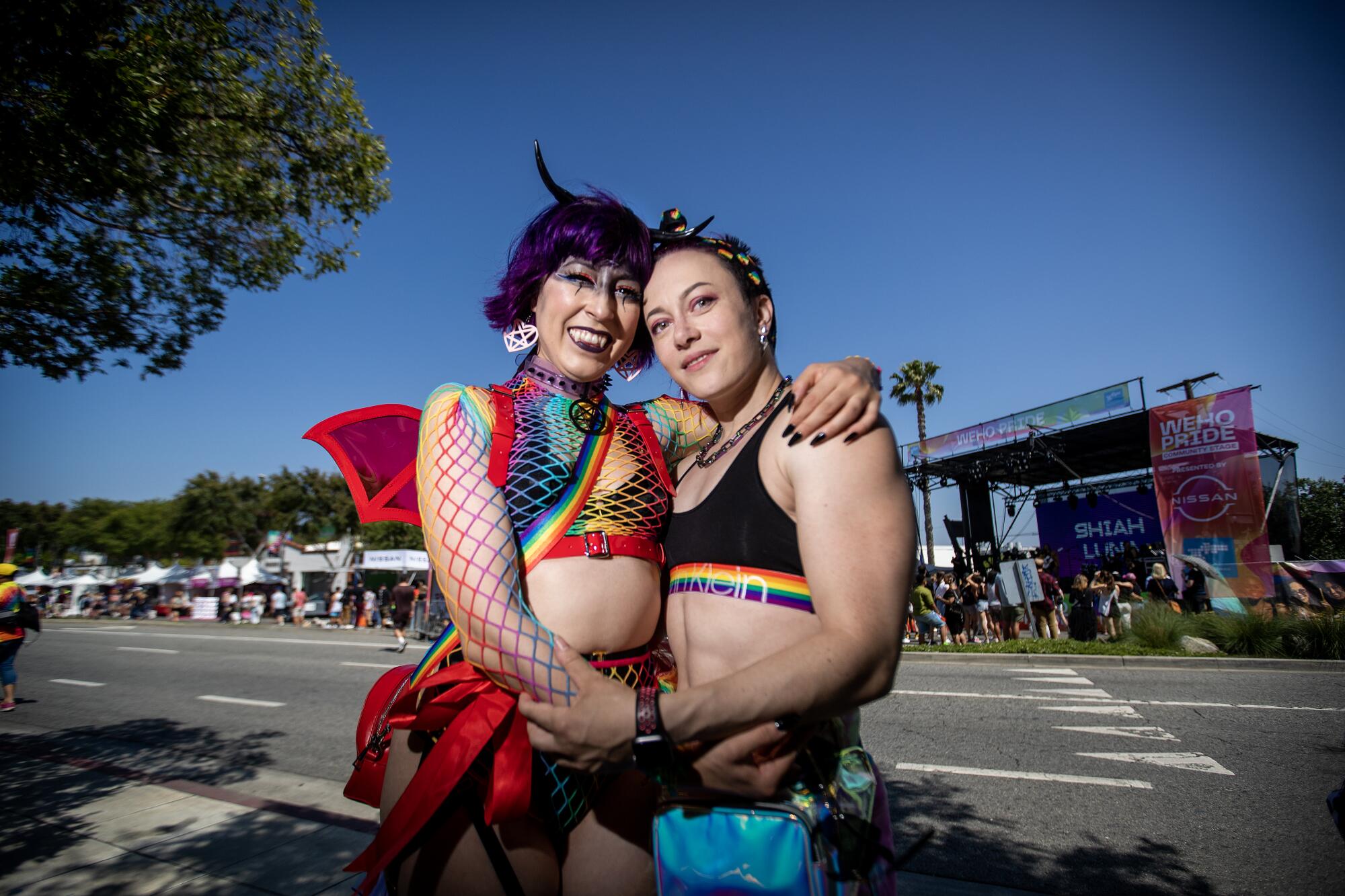
“We need to stand together whenever people are coming for trans people.”
— Alyssa Onofreo
Pierce Amadeus, 23, lives in Mid-City and came to Pride with friends from high school. Considering the current political climate and years of quieter pandemic-era attendance, he was happy to see the bigger crowds.
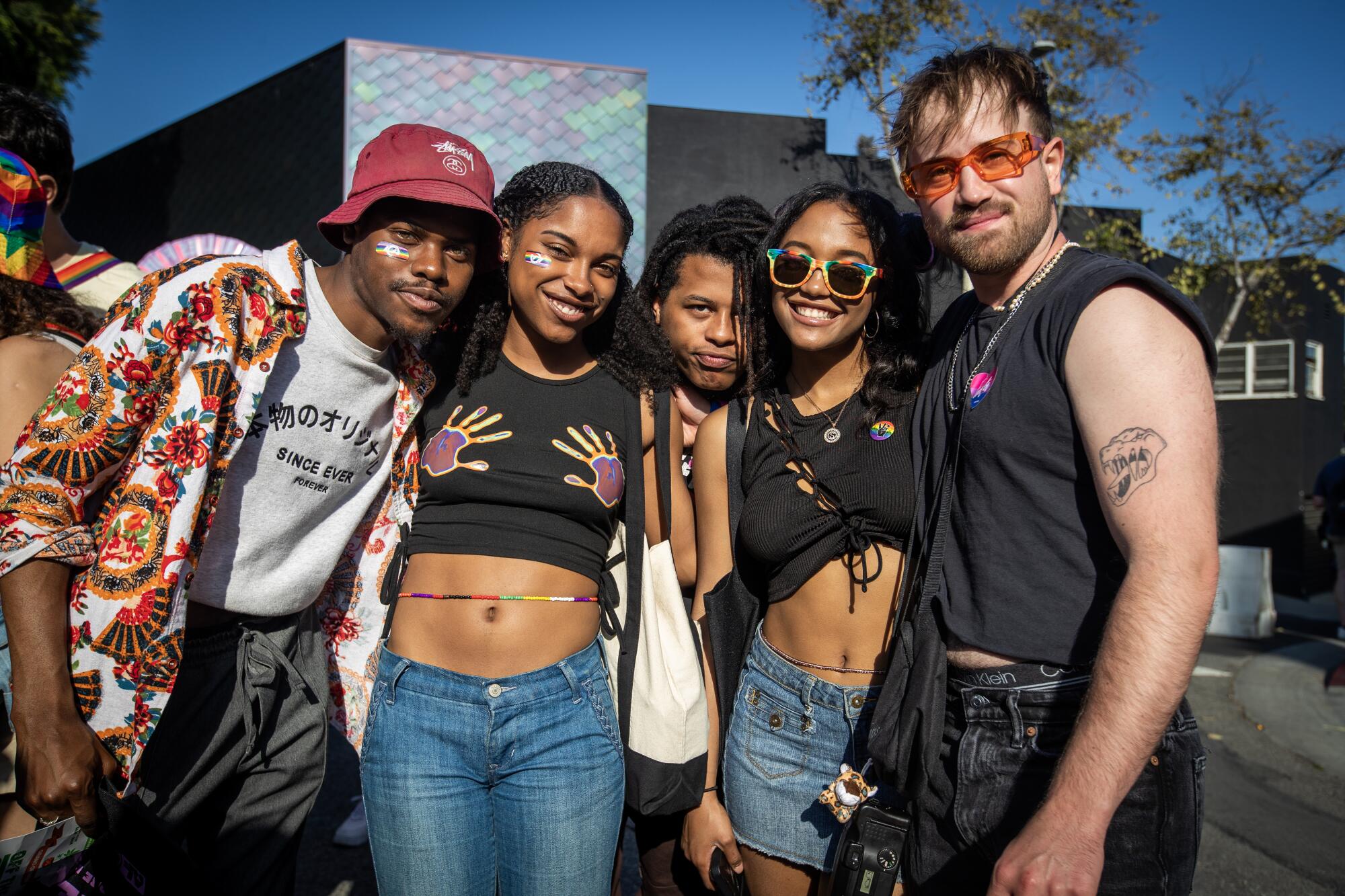
“You can’t cancel Pride this year -- you have to deal with it.”
— Pierce Amadeus
More to Read
Sign up for Essential California
The most important California stories and recommendations in your inbox every morning.
You may occasionally receive promotional content from the Los Angeles Times.




